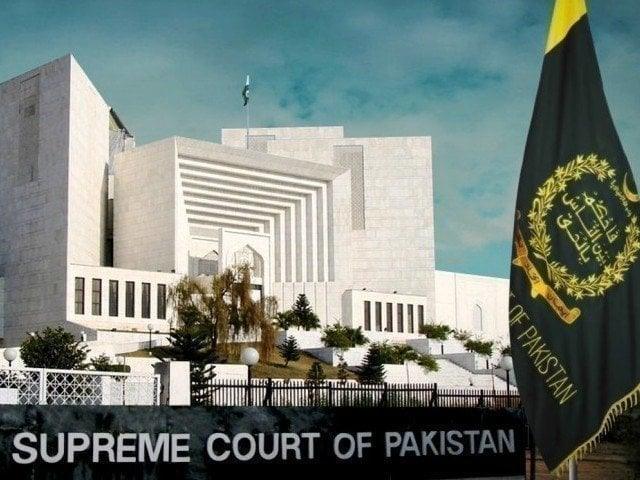Islamabad:
The chief of a constitutional bench (CB) was filed against the transfer of three judges to the High Court of Islamabad (IHC) and a subsequent change in the seniority list of judges noted that the case considered is the first of its kind.
During the case, judge Muhammad Ali Mazhar agreed with the lawyer for one of the petitioners, Barrister Salahuddin, that there is no precedent in the past for a permanent transfer from a high court to another. “This is the first case of this type involving such a transfer,” he said.
Earlier, the lawyer Salahuddin argued that the seat of a judge cannot be canceled by a transfer, and a permanent transfer would make article 175-a of the constitution ineffective.
Article 175a establishes the Judicial Commission of Pakistan (JCP), which is responsible for the appointment of judges of the Supreme Court, High Court and the Federal Court of Sharia law.
He said that in virtue of article 200, only temporary transfers are authorized and that permanent appointments can only be made by the JCP.
Judge Mazhar noted that in virtue of article 175-A, new appointments can be made, adding that “appointment” and “transfer” have different meanings.
Salahuddin said that a significant consultation is essential in the transfer of any judge, and without it, the whole process is a simple formality. He alleged that information had been hidden and that inaccurate details were provided during the transfer of three judges to the IHC in February of this year.
Judge Mazhar said the case implies the interpretation of constitutional and legal points. He noted that three chief judges were involved in the transfer process and that everything was not in the hands of the executive. The consent of the transferred judge is also obtained, he added.
Salahuddin referred to the rules of the public service, declaring that when two people are appointed the same day, seniority is determined on the date of birth – a principle that the SC has confirmed in a previous reference.
He also cited the Aslam Awan affair, which called for clear rules on judicial seniority. The Pakistan Attorney General (AGP) Mansoor Awan said that once the SC defines a principle, the rules follow.
Salahuddin asked the Supreme Court to decide on the case based on the rules of the public service, the previous previous ones and the principle of equality.
Judge Mazhar asked what becomes the previous service of a judge if he takes a new oath after his transfer from a high court to another. “In India, even if a judge lends five oaths to the transfer, their determined seniority is not affected” but Pakistan has no “any Pakistani group”.
He said the court raised questions for clarity and enlightened judgment, noting that when a high court judge is raised to SC, their final remuneration certificate reflects 11 or 12 years of service.
Salahuddin replied that if the services and pensions would be preserved, the seniority of the judge would be reset. He urged the court to examine the impact on the judges in exposure of the court receiving the transferred judge.
It would be unfair, he said, for a judge classified 16th before a court to become the most high-end judge in another, before those who were previously more senior. The acting chief of the IHC, Sardar Muhammad Sarfraz Dogar, one of the judges was transferred to the IHC in February, ranked 16th before the High Court of Lahore.
Judge Mazhar reiterated that no objection of this type was raised by the judges of the High Court of Lahore and asked the lawyer to stick to the questions related to the CIH. He added that if the arguments ended by June 16, the court can make a short order after consultation with the judges on the same day.
Lawyer Salahuddin asked that the case be heard until the next day. Judge Naeem Akhtar Afghan noted that some judges on the bench would not be available. Judge Salahuddin Panhwar said that refutation arguments may include questions. The hearing was adjourned until 9:30 am on June 16.




